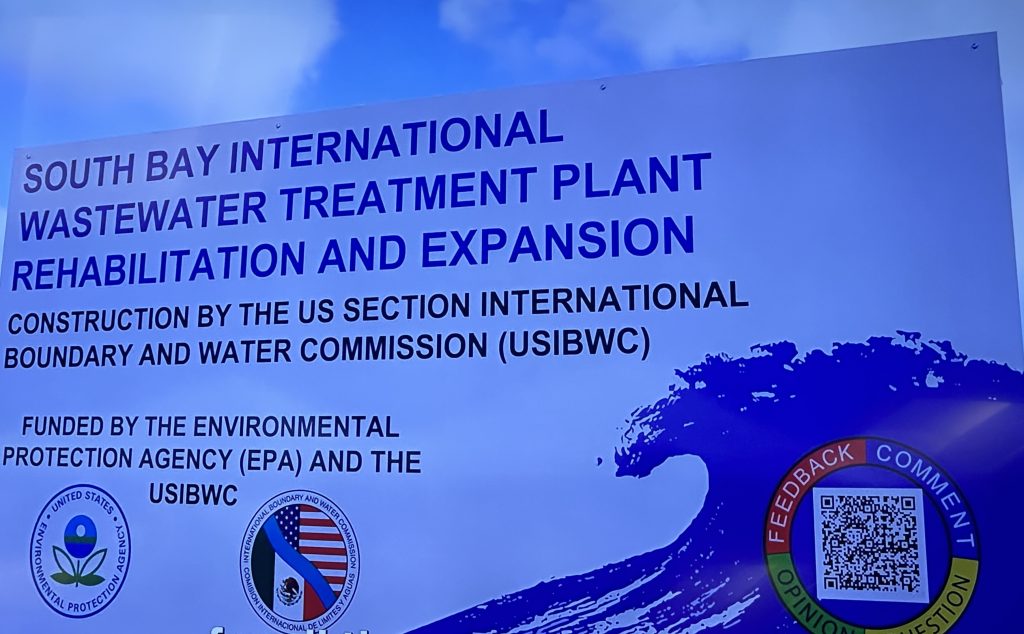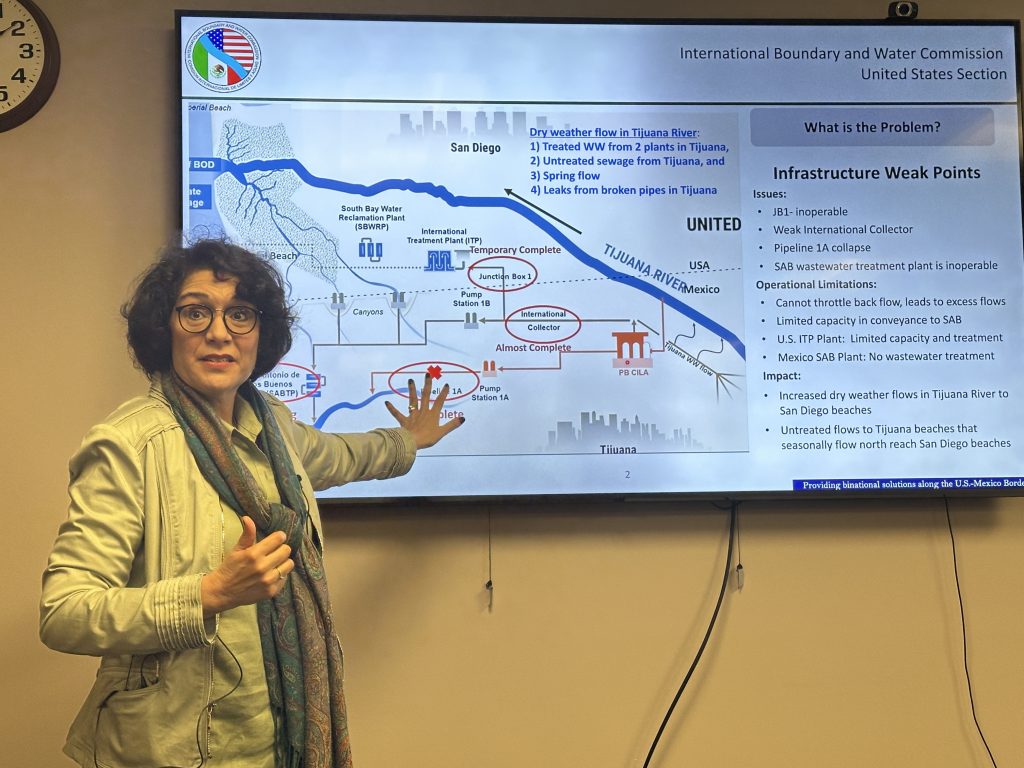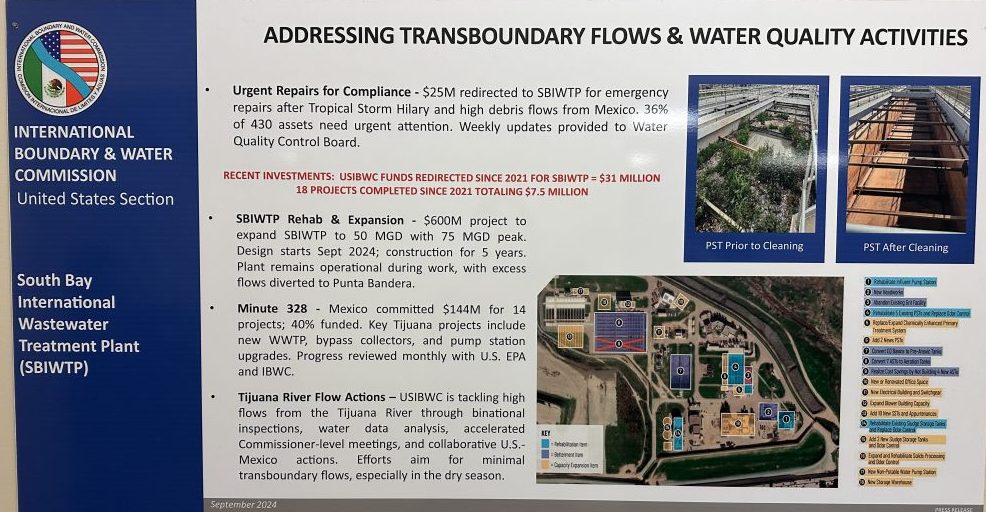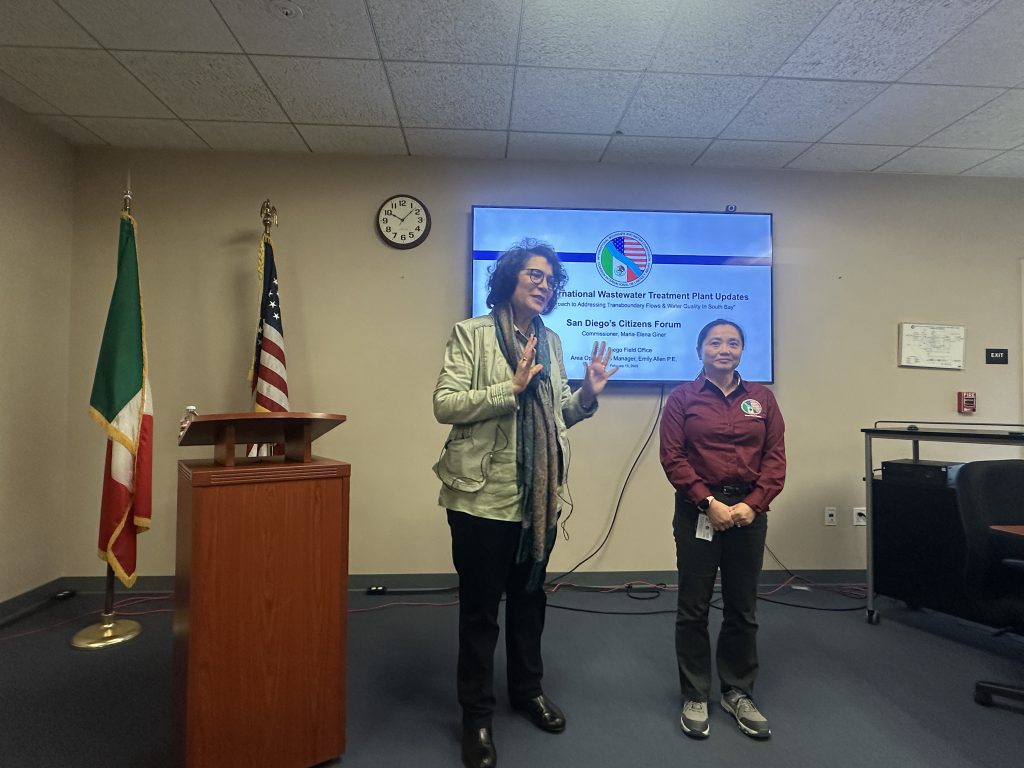 The International Boundary and Water Commission (IBWC) provided an update on the status of repairs and rehabilitation to the international wastewater treatment system at the South Bay International Wastewater Treatment Plant (SBIWTP) on February 13.
The International Boundary and Water Commission (IBWC) provided an update on the status of repairs and rehabilitation to the international wastewater treatment system at the South Bay International Wastewater Treatment Plant (SBIWTP) on February 13.
USIBWC Commissioner Maria-Elena Giner provided an optimistic outlook as she shared the latest progress made both on the U.S. and Mexican transboundary projects. Griner opened the event by expressing her gratitude and relief that the project has now been fully funded to the $600 million required to make the repairs and improvements over the next five years.
The water quality crisis has been receiving a lot of recent attention, including a Department of Defense Inspector General report highlighting that US Navy SEAL candidates often train in water whose bacteria level exceeds state safety standards.
“I’m glad this report came out,” said Coronado Mayor John Duncan. “We are making significant progress and have most of the funding for the sewage treatment plant. Ongoing maintenance funding is essential in future budgets. However, transparency from the Navy and DOD is essential to support resolution.”

The IBWC brief focused on four key fronts the commission is working on to address transboundary flows and wastewater quality affecting the coast: repairs and compliance, rehabilitation and expansion, Treaty Minute 328, and transboundary flows.
Giner said that the IBWC is continuously repairing and updating the plant and has incorporated a progressive design-build to allow for incremental improvements to water quality as the project progresses. The plant will continue to operate throughout the design, construction and repair process.
Once complete, the SBIWTP’s capacity will be expanded from 25 to 50 million gallons of per day, with a peaking factor that can treat temporary flows of up to 75 MGD.

Giner showed a slide that she has shared with Congress to explain the challenges faced locally with wastewater treatment system failures leading to deteriorating water quality in the San Diego area.
Giner said that all the defense mechanisms to protect water quality have been located on the Mexican side of the border. By rehabbing and expanding the US’s international wastewater treatment plant, the US won’t rely so heavily on Mexico.

According to the EPA website, Minute 328 refers to “two binational agreements signed by U.S. and Mexican federal agencies in July 2022 as a commitment to reduce transboundary wastewater in the Tijuana River watershed and Pacific Ocean through a suite of infrastructure projects on both sides of the border. These agreements were a result of the Tijuana Binational Wastewater Technical Working Group collaboration which began meeting bi-weekly since September 2021. The agreements include prioritized short- and long-term wastewater infrastructure projects and outline funding sources and a conceptual plan for implementation.”
Giner shared that $144 million has been committed by Mexico for its 14 infrastructure projects and to date, 40% of that has been procured. An update on those projects is here.
The final focus area discussed was concerns about high transboundary flows and sediment entering the United States from Mexico. From reviewing satellite imagery to binational river inspections and continuous water data, USIBWC is working to achieve zero or minimal transboundary flows.
Giner acknowledged past challenges and delays, saying that it is unacceptable that water quality standards have not been met, but she remained optimistic that the IBWC is on track to a successful completion of the project.





What is the time-line for all the individual projects that have to be done over the coming years? Has that been shared with the press/public?